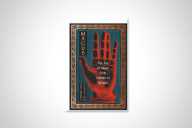You have /5 articles left.
Sign up for a free account or log in.
When I was in graduate school, one of my friends received an extreme response when she asked a question that violated one of the basic assumptions of Economics. Looking back, I am surprised that I never received a similar response, as I started asking questions about firms that don’t intend to earn a profit and people who act out of altruism from almost the first day of my studies there. However, no one ever responded to my questions the way they did to my friend that day, a response that became almost a legend among our cohort of graduate students. When she asked her question, she was told, on no uncertain terms by the professor that “that question cannot be asked.”
I thought of this last week as I submitted my blog column about the Ursulines and the Jesuits and, I must admit, I cringed a little, when I mentioned my puzzlement with my religion that insists on not allowing women to be ordained as priests. Surely there would be a reader who would object to me bringing up such a subject, a subject that is officially considered “taboo,” and, like that question in the second semester of Microeconomics, supposedly cannot be asked. But I wrote it, anyhow, and was prepared to hear some fallout. Amazingly (perhaps because of the make-up of my audience), I heard none. However, only hours after having my blog posted last week, I learned of comments made by our new Pope, Pope Francis, who is, interestingly enough, a Jesuit himself. He gave a long interview to the Jesuit magazine “America” in which he addressed some of the “hot button” issues of the Roman Catholic Church in the modern age.
I was most intrigued with his comments about women and the role of women in the modern church. He said that we need the “feminine genius” in making decisions in the church, and that we will need to think deeply about how exactly that should be expressed. He seemed to be ready to listen to the viewpoint of women in making decisions that affect so many of us. Perhaps, I thought, he is even ready to listen to mothers, the real kind, who struggle day to day to care for children (perhaps multiple children) in a chaotic modern world.
As I read what Pope Francis has to say, I also began to wonder what special gifts women might be recognized for bringing into the world, gifts that might be different, due to nature or to nurture, from those brought by men, who currently often hold authority in not just my church but in many aspects of life. For example, I am sure that I am not the only person who thinks that parents in general, and mothers in particular, would not have waited for the Boston Globe to expose the issue of abuse in the church in past years, had they possessed more power at the time. And, could it be, as implied by the original decree creating Mother’s Day in the United States, that mothers have a special interest in creating a peaceful world? I wonder if readers could add any insights of their own, perhaps from their own fields of study, that might inform leaders of the Catholic Church as they seek to explore the role that women play in the world and in that church. Should I receive any ideas, I will work to find a way to send an electronic copy of your thoughts to those who are looking at this issue.
Not long ago, my daughter saw the movie “Mars Needs Moms.” She told me that she was especially amused by the portrayal of people walking on Mars, as they seemed to jump from place to place when not held down as much as usual by gravity. I wonder what freedom my church might find if it was no longer held down by artificial restrictions that do not allow us, like that graduate student colleague, to ask certain questions.





